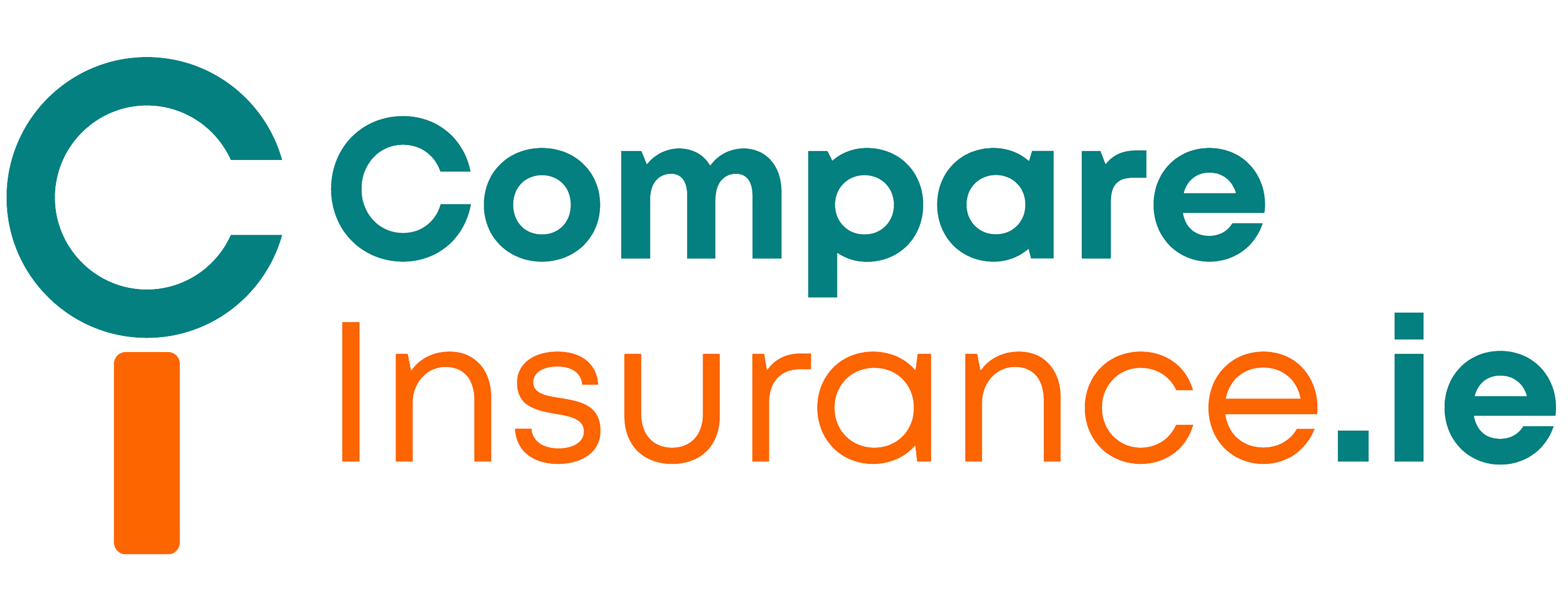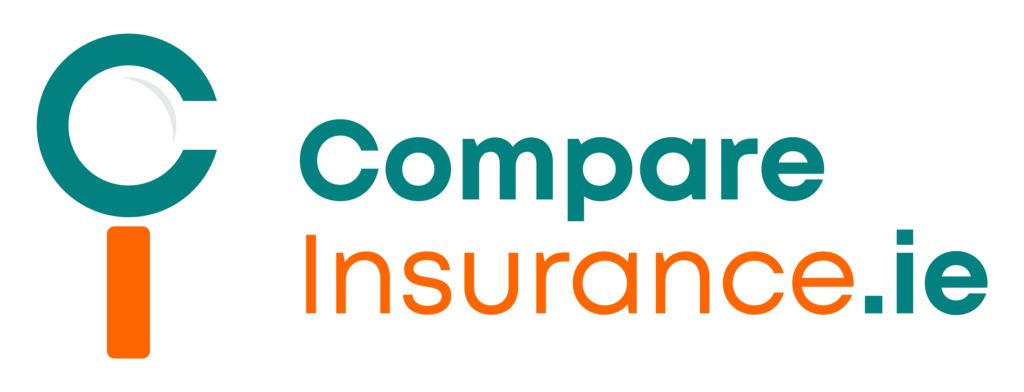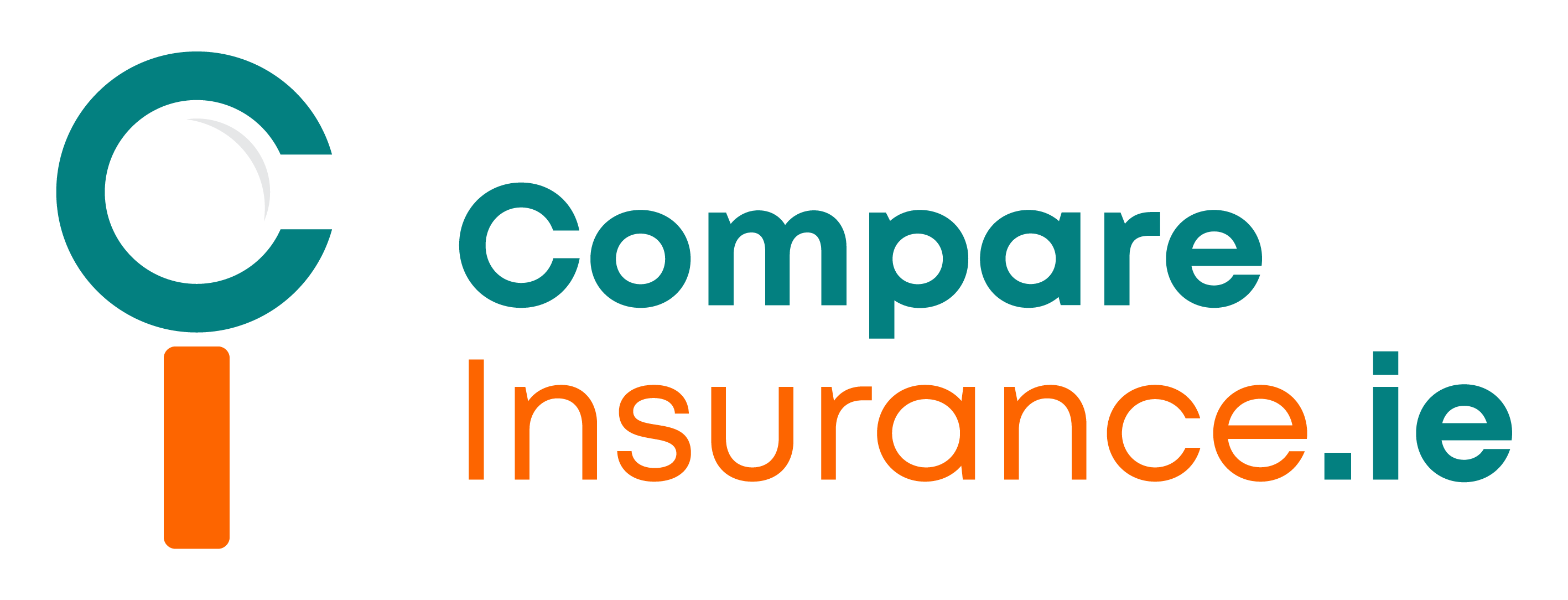The internet of things means that smart devices in your home can be accessed and controlled via Wi- fi or Bluetooth by your laptop, phone, tablet or home hub even when you are on the other side of the world.
This offers a whole new avenue of home security with integrated home security systems that can be internet connected by Wi-fi or Bluetooth and operated at home or remotely by the homeowner or a third party monitoring system.
Table of Content
Benefits of smart home security
Many burglaries and break- ins are as a result of weakness in home security that opportunistic burglars use to gain access to your home. Physical security is still essential, such as secure doors, locks and windows as well as security lighting to the front and rear of your home.
However, a smart home security system offers another level of protection for your home, as well as the peace of mind that the high level of access and monitoring enabled by a smart home security system brings.
Your smart home security can notify you via an app if your security has been breached or if an alarm or sensor has been triggered. This will allow you to monitor your home security from wherever in the world you may be and call emergency services if necessary.
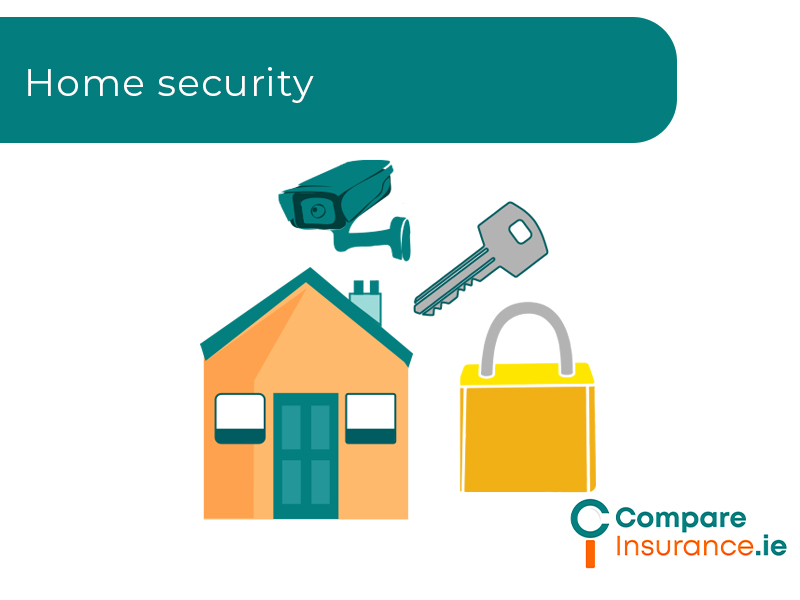
What types of smart home security are available?
Typically smart home security will monitor and send you an alert with regard to the safety of your home in terms of a break in, a fire, or a flood. A smart home security system may comprise the following elements:
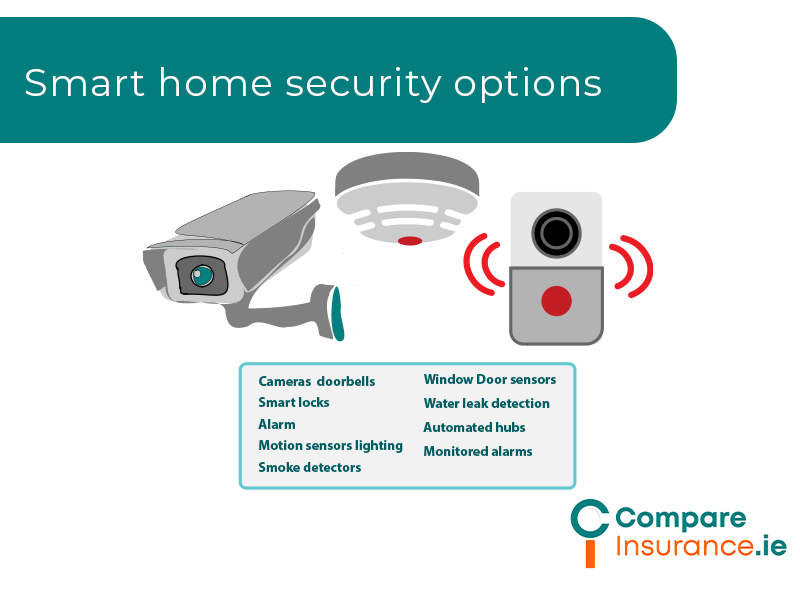
Cameras and Doorbell
Indoor and outdoor cameras monitor your home and record via Wi-fi so that camera footage can be accessed via smartphone or laptop in real time or footage can be stored and accessed via the cloud.
Doorbells with camera function allow you to see who is at your door, but also speak to them and can also work in conjunction with smart locks, allowing you to let someone into your home if necessary.
Smart locks
Smart locks can be accessed remotely via an app to allow you to lock your door if you forget. You can operate your door locks via wi- fi or bluetooth or you can have a touchscreen or fingerprint lock.
Your phone, laptop, or tablet will receive a notification if the lock is opened, allowing you to contact Gardai if it is an unauthorized access.
Alarm/ Motion sensors
A traditional burglar alarm will use noise to deter a potential intruder if the sensor is triggered and a smart alarm works in a similar way, sending an alert to your smartphone, tablet, or laptop if the alarm is triggered.
Wireless alarms and/ or motion sensors will trigger if there is movement when the alarm is set allowing you to monitor your home in real time.
Lighting
Smart lights can be operated by your smartphone or other device, meaning that you can turn them on and off at various times to give an impression that the home is occupied.
Your smart lights can also be a security measure as, should you receive a notification that, for example, a motion sensor has detected movement you can turn on a light to deter a potential burglar.
Smoke detectors
Smart smoke detectors can sound an alarm if smoke is detected in your home as well as sending an alert to your smartphone.
You can also turn off a smart smoke detector using your smartphone if it is a false alarm.
Window / door sensors
Smart window and door sensors will trigger an alert when the window or door is opened.
Your phone, tablet or laptop will then receive an app notification that the sensor has been triggered, allowing you to check whether the door or window was opened by, say, a family member or by an intruder and alert emergency services, if necessary.
Water leak detection
Smart sensors or monitors can be installed which can monitor and send you an early warning if your home has a water leak.
This can reduce the risk of water damage in your home due to escape of water.
Automated hubs
Automated hubs such as Amazon Echo, Google Nest, or Hive can connect and integrate all of your internet of things or smart devices. This allows you to control all of your internet connected devices, locks, cameras, or alarms etc.
Monitored alarms
For additional security, all of these alarms and devices can be monitored by a third party company, who will alert you or the appropriate emergency services, eg. Gardai, fire services should it be required.
Insurance implications of smart home security
Smart home security is very new technology, so its implications for your home insurance may not be clear as of yet. Installing an alarm, especially a monitored alarm or a system that communicates to emergency services, will currently bring down your insurance premium.
Having a smart home security system professionally installed in your home, especially a system monitored by a third party, may have the effect of bringing down your premiums even more than a traditional alarm system.
Early warning of theft, attempted theft, fire, and escape of water will mean that your likelihood of a claim on your home insurance may be reduced. In the same way that telematics can bring down the cost of car insurance, smart home security may also yield information that is valuable to your insurer in calculating your home insurance premium and may bring you a discount in your home insurance.
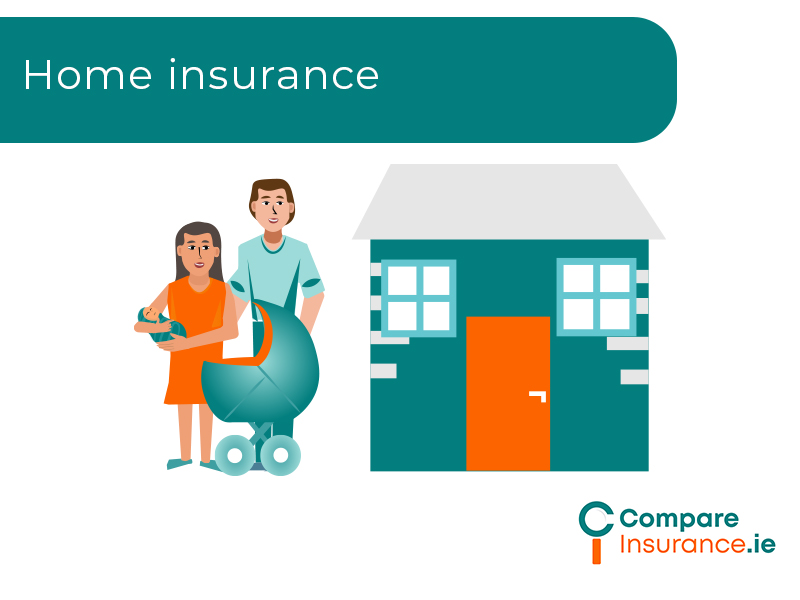
Added costs
The cost of the security system, however, may mean that the contents value of your home is increased and you will need to bear this in mind when calculating your contents value for your home contents insurance.
There are also insurance implications should your smart devices malfunction. If the system malfunctions, or there is a power cut, for example, then you will need to ensure that you have a way to secure your home. A smart lock malfunctioning may leave your home unsecured and may mean that your insurance will not protect you in the event your home is burgled.
Cybersecurity and smart home security systems
Smart home security systems that rely on internet connectivity may leave your home and your personal data open to the threat of being hacked.
Your smart home security system itself could be hacked, leaving your home unsecured.
Furthermore, the internet access enabled by smart devices can lead hackers to access your laptop, phone, or tablet and your personal data. Your privacy can be violated and your data accessed via your connected devices.
Typically gadget insurance offers protection for unauthorized phone or data use when your device is stolen or lost and insurance for smart home security may require similar additional protection for the risk of security system breach by hackers or personal data access by hackers. This would likely increase the premium for smart home insurance.
There may also be insurance implications as, if your system is hacked, your home may be considered unsecured by your insurer and you would not be able to claim on your home insurance.
Securing your smart home system
Being cyber security aware is essential. Do some research before you buy or install any smart home security system to ensure that hackers cannot take control of your security system or access your personal data.
When setting up a smart home security system, it is essential that you bear some security measures in mind:
Speak to us today about home insurance for your smart home
If you have already, or are considering, upgrading your home with smart or connected home security, speak to us about your home insurance.
We can discuss your home buildings and contents insurance requirements with you and find the best cover for you that works with your smart home security system.

Author: Séamus Ó Doirín | Chief Insurance Editor
Séamus Ó Doirín is a Donegal based QFA who has been writing about insurance since 2020. His main focus is getting people the best value for insurance in the Irish market. His writing covers all areas of insurance and is a valuable part of the Compare Insurance team.
